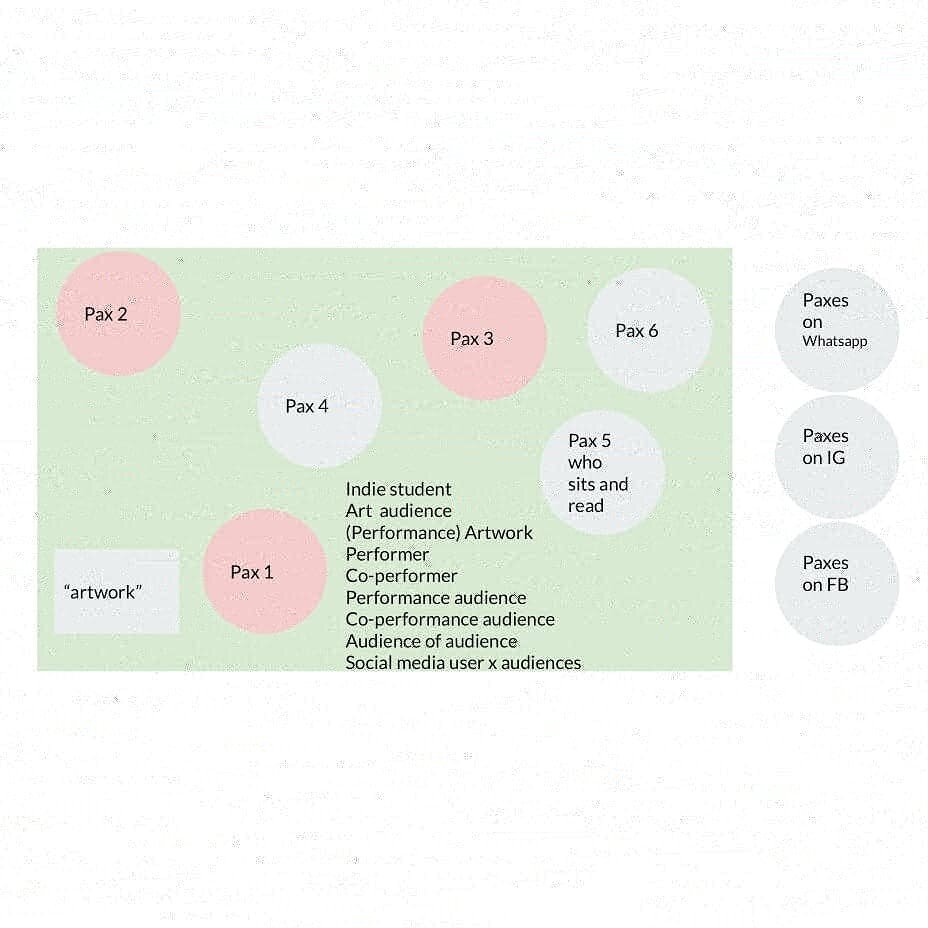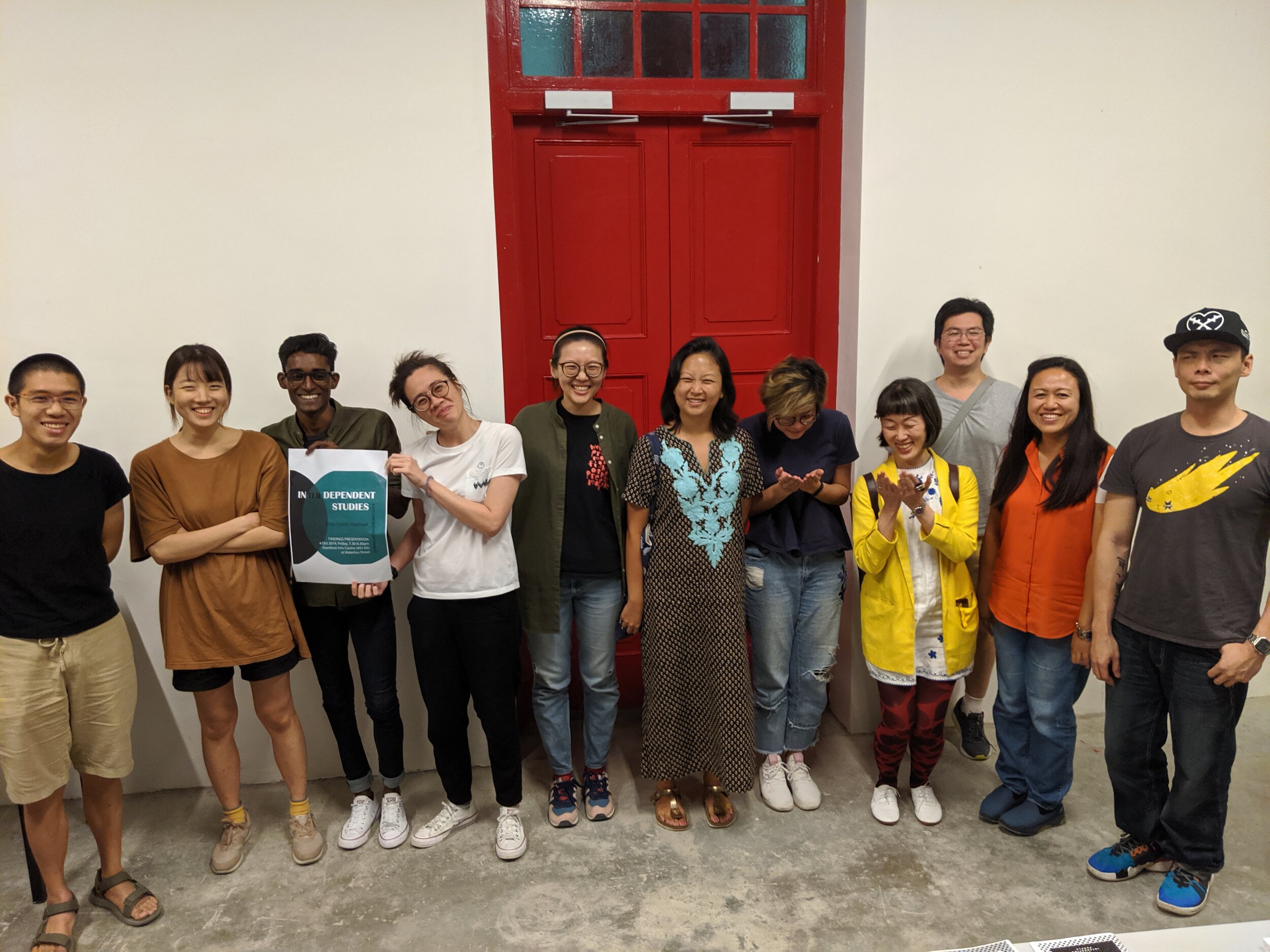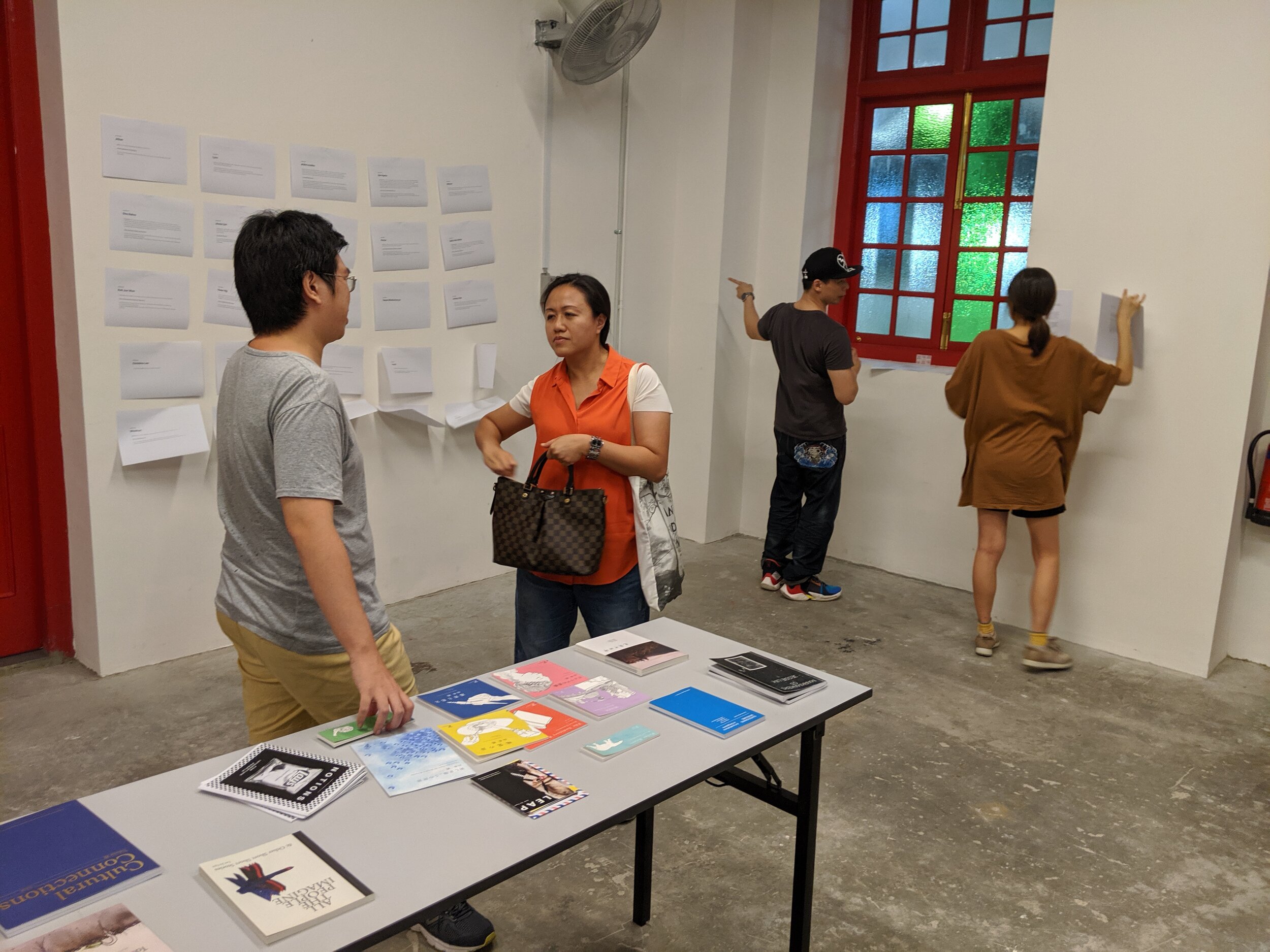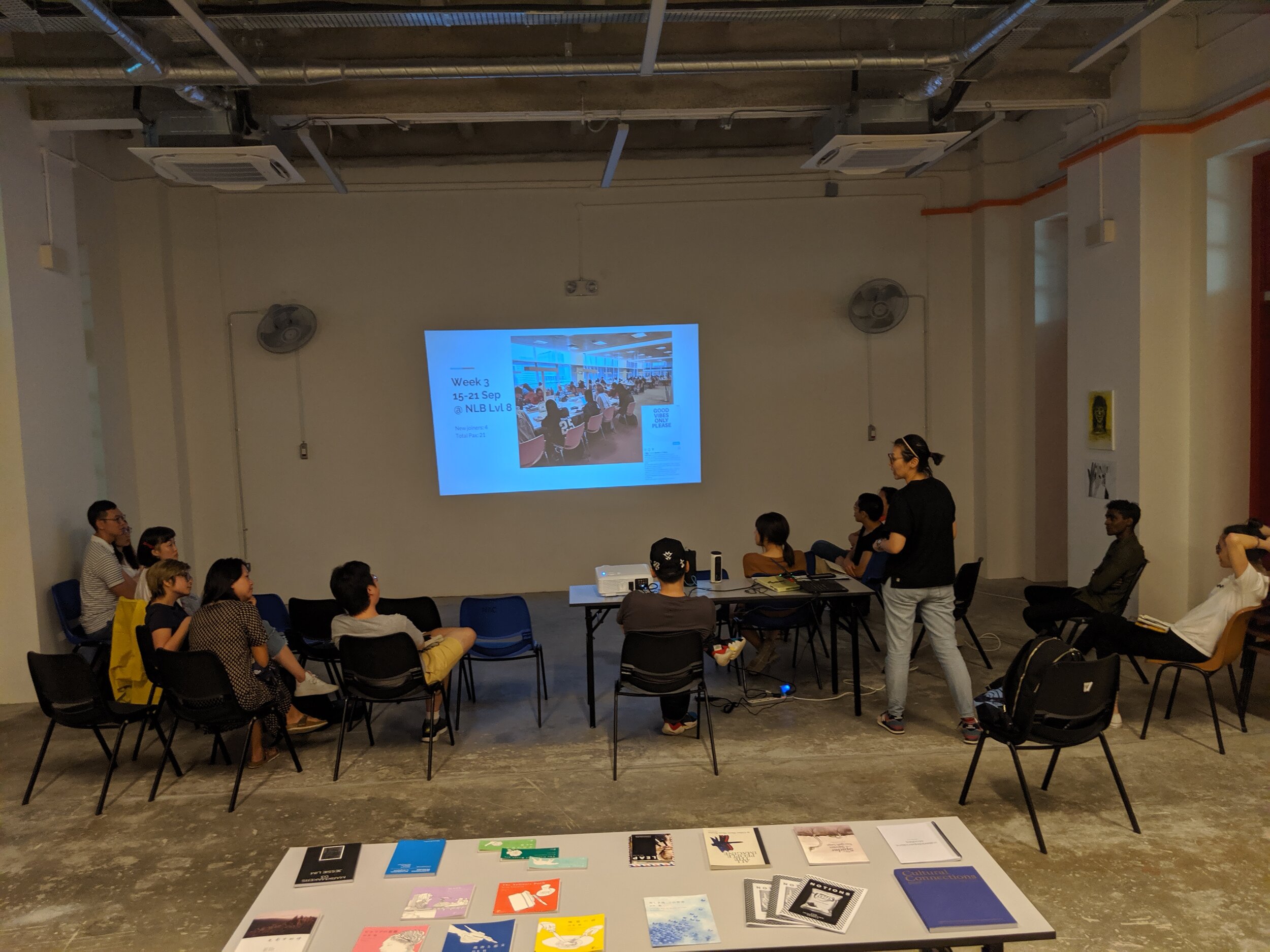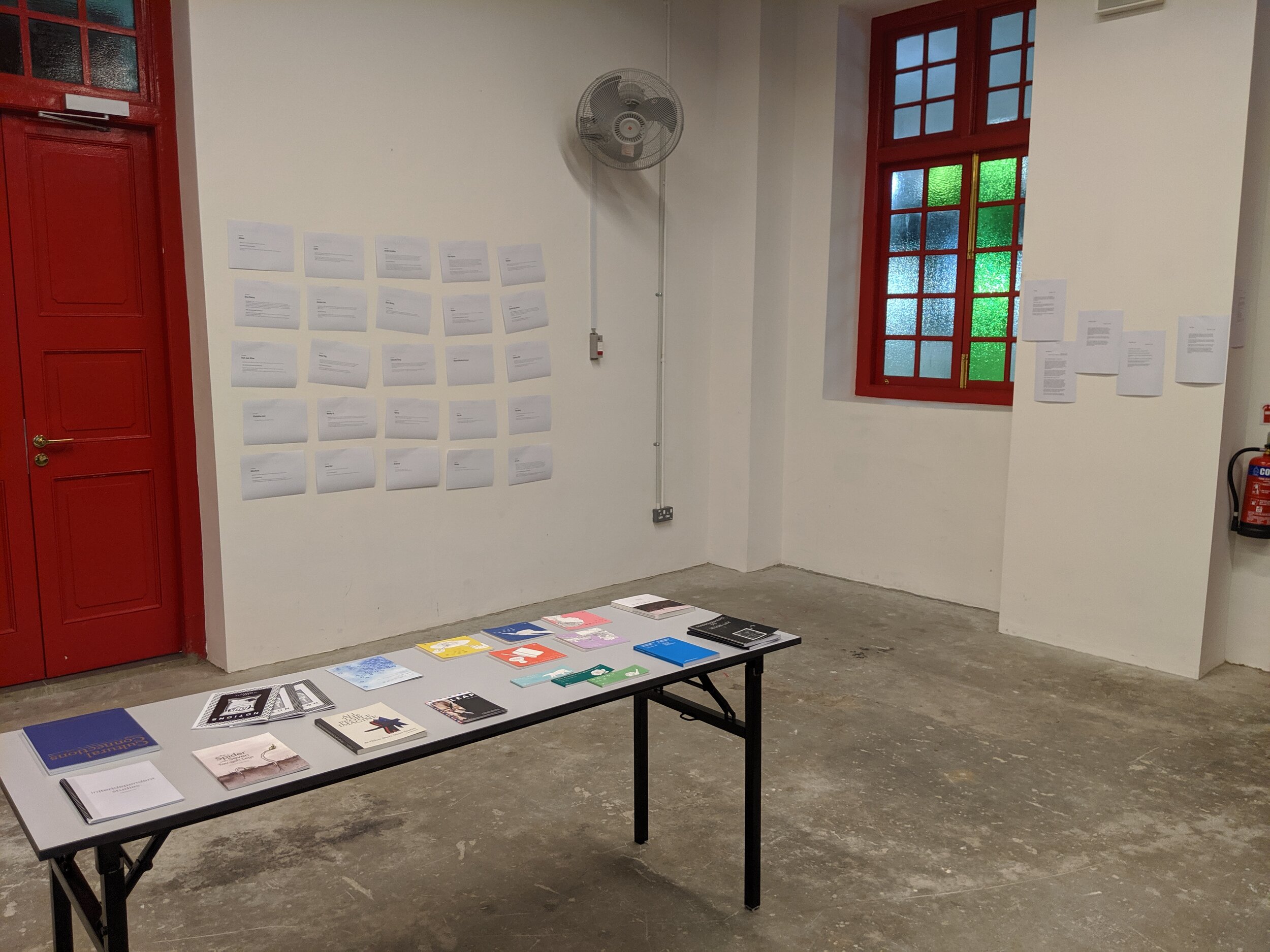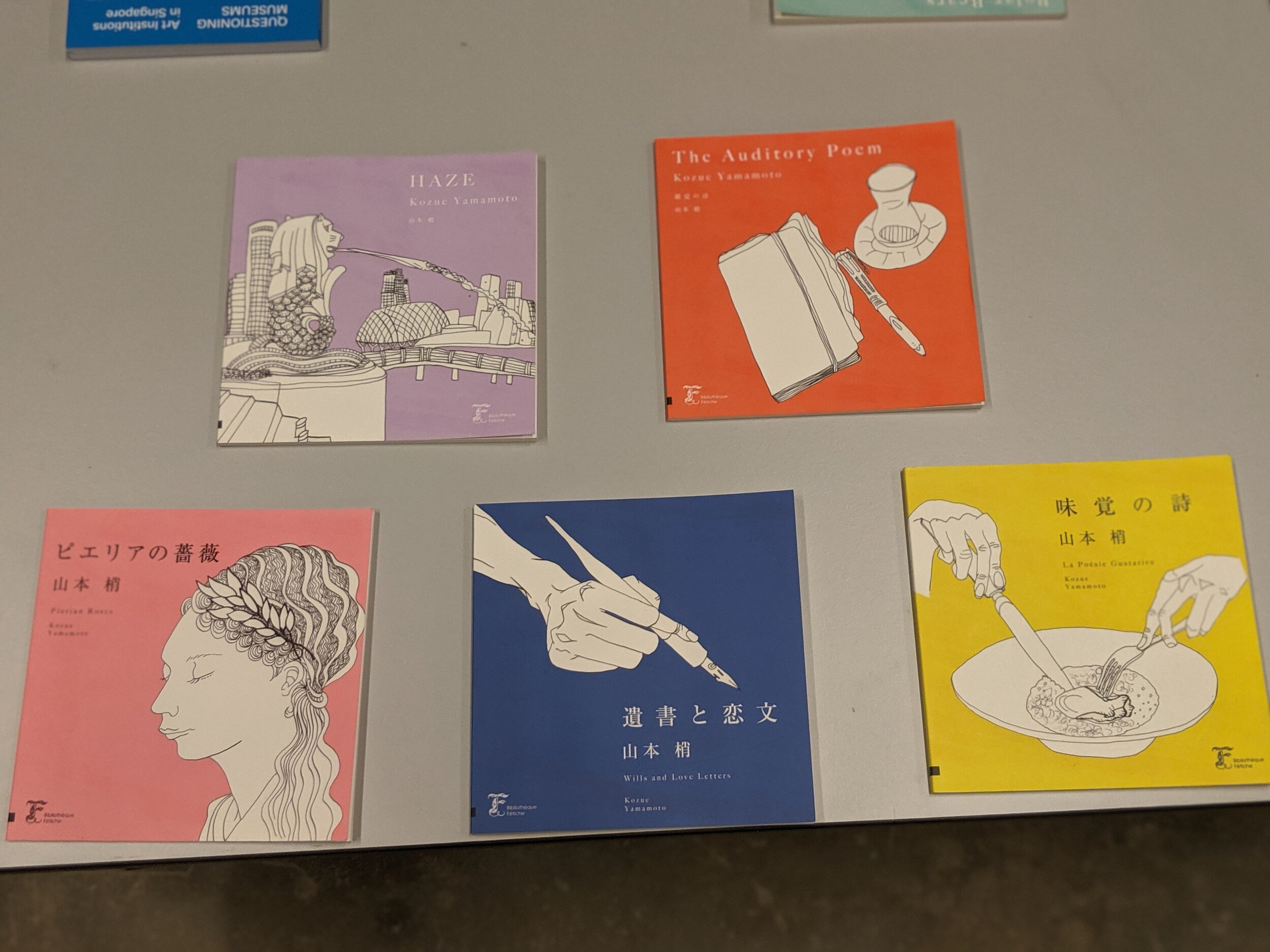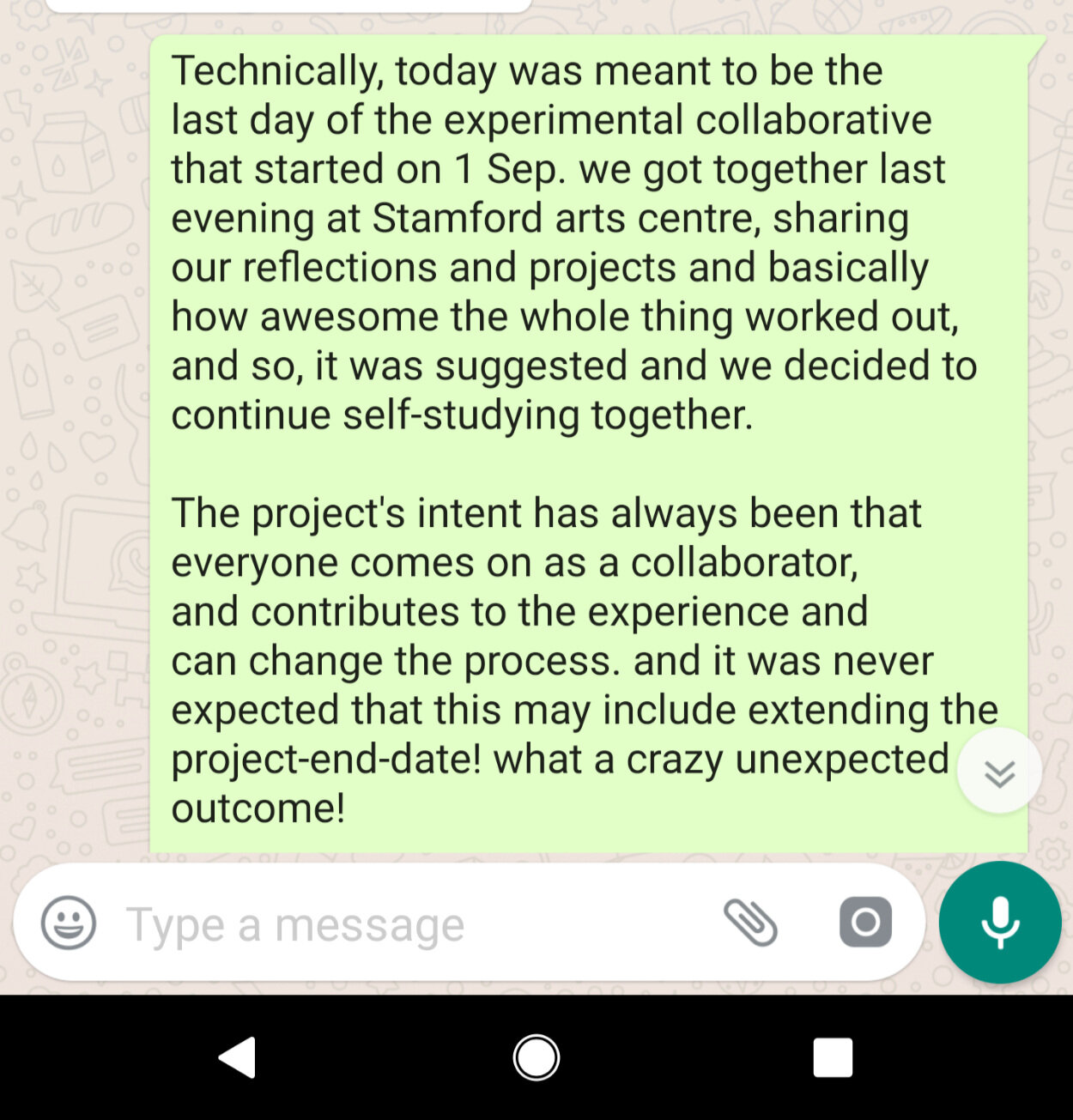And the know how.
Was too busy over the weekend to write a report about how the get together was like, until today, and then I remember what I dislike doing is to document very many things like writing minutes.
It was just last Friday but it feels like some long time ago - today I have to eat lunch but I also don’t know what to eat and I have no appetite.
[On 11 Oct, I realised this was in my draft since 9 Oct when it was originally meant to be completed and posted but I ran out of strength.
On 16 Oct: I’m editing this post to append the following, which I wrote before the studies period technically started. And I guess it’s good to end by recalling the ideas I had at the beginning and it’s quite befitting for those coming to read the journal for the first time as well.]
An introduction to In(ter)dependent studies (1 sep - 5 oct 2019)
30 Aug 2019
Sometimes I decide to do something for fun, then I go and do it and then I involve other people, then I feel like I’m not supposed to do things simply for fun, then I forget that I wanted to do it for fun, then I wonder why I went ahead to do it, if it wasn’t for fun.
When I first read Pablo Helguera’s book on socially engaged art[1], one of my initial response was “how about socially disengaged art?” He had a scale on the different levels of engagement, and it didn’t begin with zero or negative. I was quite into the idea of the “recluse artist” because I had come into the arts, running away from something, and I didn’t want to be found. My studies in the past years, culminating in my thesis about the late Singaporean Chinese painter Dr Chen Wen Hsi and his exhibiting activities, made me question my naivety and to confront some personal issues, which is not easy and not the point of today’s writing, but it explains why I decided to take some time to think about myself and to read the books that I’ve been wanting to read, like Craig Clunas’ Elegant Debts[2], which I have put off for about 3 years. The overdue fines I’ve paid to the national library on this book in the past three years, would have already heavily subsidized the cost of getting my own copy of the book.
I’ve been reading it recently. I had read Clunas’ more recent Chinese Painting and its Audience[3] for my research paper quite quickly and found it quite accessible and enjoyable. I thought it’s because my reading skills have improved but apparently, it’s more complicated than that because I now find this Elegant Debts harder to read. A few explanations, likely combined:
Any improvement in my reading skill is not permanent, and subject to retardation.
When reading for the research, I was looking for something relevant, so I could go through the book faster. Now I don’t know what I’m looking for, so I am slower.
Clunas’ writing skills have also improved from book to book, and it’s easier to read the latter one, because it’s easier to read. Writing these things is also learning.
The implications and argument of this book, is confrontational to me and my escapism, so it is difficult for me.
I went to propose In(ter)dependent Studies, because I had this idea that I’m still studying and since I’m no longer affiliated to any institutions, I’m an independent student. I went to the Siah Armajani exhibition and felt that, especially the “Reading room” work, resonated with some of these issues, and that it was opportune that there was an open call for people to do something with the artwork, which included books ranging from those on Armanjani to Husserl. To do something as in to read the books or something. Discuss them. Activate them. Activate the space. When we first heard about this idea, my initial reaction was to ask, why do I have to go there to read something when I can read them anywhere? The exhibition, held at the Centre for Contemporary Arts (CCA), located at a place that takes about a 10 minutes’ walk from the nearest bus stop, from which would take about an hour of bus to reach from my home.
But, CCA is not just a gallery, it also co-organised the curatorial and museum studies programme, for which I had prepared my said thesis. So, just a few months ago, this place was kind of like my “school”, where I physically attended formal classes for which my attendance was taken and my participation graded. Has its status changed for me, just because my programme has technically ended? I checked out the exhibition on the day I was at CCA for the launch of a book produced by the students and lecturer from the course, and the event was something like a pseudo-ceremony graduation thing, and someone said that the programme graduates were part of the extended family at the CCA, and we were always welcome… so it’s a home?
So, all in all, these were the questions I was asking myself:
Why indeed, do I have to go there to read something when I can read anywhere? What is the difference between studying there at school and the art gallery and studying at home by myself?
This resounded with the question that my course mates and I were asking in the classes held there just less than a year ago, like, is art art only when it’s in the art gallery?
I had also raised my question “what about socially disengaged art?” at CCA although I don’t think it picked up traction in the class discussion that day.
There are differences between studying with a school and studying by myself. I’d been doing it for the past month or so and I feel it starkly. I could write about all these, but I could do other things with my time. For instance, to really experience studying in the art gallery and then anywhere else and then note the difference. It’ll be an experiential experiment.
Lynx, and I were also recently discussing the merits of a Masters’ programme, and he was also asking the question, like what’s the difference between formally doing a research programme and doing it on our own. It reminded me that he and other people actively study things by themselves too. Many of my friends are actively researching on their individual topic of interests, in their own time and with their own effort… although they’re not paid for it, and they do it for very many different reasons. Their efforts will not be certified… but maybe they do it for a project that they are up to, but why are they doing that project for anyway? For very many different reasons. So, I wondered if they would like to self-study together, and included that to my proposal, which then became an invitation. What if they respond? What if they didn’t? The lack of response was also interesting to me. My response to their response was also interesting to me. I wouldn’t know unless I try. It’ll be another experiential experiment.
What are the differences between studying on my own (anyway I’m already doing it and will be doing it for quite a while more) and studying with others?
What are the differences between people who would want to study together, and those who wouldn’t?
What is the meaning of studying “together”?
And of course, when asking about differences, one is also asking about the similarities.
Now, the thing is, I hadn’t planned on studying about studying at first, I had wanted to think about other things, and might still carry on in that direction. So, I also recognise and deeply respect and cherish that everybody wants to study different things for their own purposes and so on. Thus, I was very sure that I wasn’t about to ringfence any topic or curriculum for everybody. Everyone has one’s own path to go on about. The question is, if people would like to take a break from studying by themselves, to study together?
To be honest, I am too engrossed with coping with my own life’s questions, to try to even monitor if other people are living theirs properly. I would even appreciate if others would monitor me! Self-discipline is difficult. I suppose that’s why people have groups for exercising together, and then have trainers for their gym. So, all these ideas were included to the “invitation” and the “plan”, that would be subjected to change as people got on board as collaborator.
I went to write these out. It took way longer than I thought. I had to keep editing myself to allow for more freedom and minimum structure until I realise the irony and decided to just try my best to let go of control. Ahdini and I had recently discussed about art school and studying as well, so I thought she might be interested. She had also asked me more about psychology (my first degree), and I had recently passed her a bunch of books I knew she was reading, so she was another self-student for sure, so I asked her about this project as well. We continued our discussion on Whatsapp, and I thought she might be keen, but she might be going away, so I had devised of some caveats to allow for more flexibility for her to join. It’d be fine if she didn’t anyway, as in I’d be disappointed but that’s on me, but anyway she did. I also sent it to Lynx, who gave lots of comments and I thought they were helpful for future readers and replied and left it in there. I had asked him, of course, he said okay. I like his comment on something that “seems messy” and I got to reply, “so is anarchy, or rather, so is freedom”. Actually, I am messy by common standards, but I can also find messiness overwhelming, so I am really challenging myself as well.
Simultaneously, I sent it to my curatorial and museum studies course-mate, Tian, with whom I shared several of the above-mentioned conversation and who was coincidentally interning at CCA, and asked her for comments. She said me that technically, I do not need any approval since basically my friends may be coming in at any time, to experience the exhibition (or not even) in a way physically similar to other gallery visitors, and the plan wasn’t to have a reading group where people come together at the same time to conduct a reading or activity. Any recommended timing would only be, well, recommendations. In my discussion with her, I realised that in connecting and involving her, and others, these ideas were no longer just my ideas, and in soliciting and taking in inputs, it changes the trajectory of the project, however slightly. That it is an experiential experiment, intended to see what happens, then it must be allowed to happen? We all have different thresholds for structure or lack of, and it’s when we connect that these are allowed to calibrate. As an institution, CCA has some structure, for instance, they are closed on Monday. Tian asked if I’m requesting for it to be opened on Monday. And I decided not to, because I wonder if I don’t go on the Monday of that week that I’m supposed to self-study at CCA, then would I self-study or would I rest? I really don’t know what is going to happen.
So, whatever whosever response becomes a data point, and however I respond or not is also a data point for self-reflection. Why do I tell some people on my contact list about it, and why do I feel reluctant or resistant to do so with others? Why do I spend more time explaining the project to some, and less for others? This took me a while to relax and just let happen. Or rather, I’m still trying to relax myself about it. Why do some people not need any elaboration, while others do?
Another course mate Juraimy, whom I know as an active self-studying person and was researching on socially engaged art for a while and is an educator by profession, replied that it’s a very good idea. Ratna saw that it’s an expression of what we discussed in the “education and outreach” module we took as well. Ridzal, in his usual blunt manner, said his initial reaction was “what’s the point?” I felt grateful to him for telling me this, because indeed, what’s the point? If there’s any point, I thought, it’s to ask what’s the point. So, from these responses, I felt more assured that the project “works”. It is doing what it’s supposed to do, what I hope it does, in that the concept translates and transfers essential ideas. There were many other important responses as well. I might refer to them for future writings.
So, in effort to collect my findings, I had decided to set up an optional google sign-up form with some arbitrary optional questions. As more and more signed up, I realised it was more and more important for me to know if they were really in or out, so I would know how to update them. There were two suggestions to set up a calendar for coordination. Most were concerned about being unavailable during the prescribed timing, some have other work requiring them to be elsewhere physically, but the timings aren’t prescribed at all. Dea didn’t ask for much elaboration except if they could take part from Indonesia, where they will be physically based for a while. So, I got this idea to set up some online platform now. Besides, I realise that things are going faster than I can keep track of, so let’s set up an online thing okay?
Another thing was that while I asked people from different backgrounds, it’s been artists, writers, and creative people who have been more receptive to this idea and will join as collaborators. At the same time, however, there are also others who might be interested to know how it works out. But not ready to commit for whatever reasons. Perhaps I should have had a survey to ask why… But anyway, the online thing can allow them to watch. Like, for example, Kozue said she is reminded how lucky we are to be in Singapore where we can gather freely in these kinds of places to read. I am reminded of Singapore’s unlawful assembly act, but I don’t know the details and I don’t think we’re going to get in trouble, and we can still study together here and there and so Kozue is right that we are lucky. I want to share what she said with the rest of the collaborators and also to whoever, on the online thing.
Then, I can concentrate on studying whatever I wanted to study, and we can self-study together, and I don’t need to be worried about being the bottleneck of information exchange and also, we can all see what happens in retrospect. I had initially thought of having get together or exchange sessions weekly, but I thought that was too constraining at first. How would this online platform thing work out? I have no idea either. This is difficult for me too. I need help figuring this out.
Tian had asked me for an image for CCA use, Ahdini had mentioned something like that, and I suggested an idea to her, so now because Tian asked for something, we now have an image. She said it’s cool. That’s cool, right?
I had been off my social media for a year or so, and because of this project I’ve switched them back on, to connect with people and invite them, and so on. So, this project is changing me personal as well. I really want to repurpose my social media now. It’s another thing to do! Another project… Projects! But what about concentrating on studying whatever I wanted to study? Was that desire also an expression of its time? Now that things have changed, perhaps I no longer want to study those things? Are these just things that cannot be put off? I was also supposed to start exercising regularly.
Going back to the idea of exercising, why is it that people, at least those around me or so it seems, find it so normal to persuade each other to exercise more and together, and yet to ask the regular person to read or study more, would be rather more… affronting? One is activating the physical body and the other the mind, is it so different? Actually, Singaporeans are pretty well studied. Our standards for maths and science and whatever is pretty recognised internationally. Many of our parents take no-pay-leave to accompany or coach their young children to study for their leaving primary, secondary, tertiary school examinations. Our fast-food restaurants become filled with students studying, to the extent that the establishments will put up signs that say, “no studying here please”. There’s a crazy tuition economy as well. The local neighbourhood bookshops are filled with varied assessment books rivalling the collection of fiction and non-fiction books combined. But people don’t seem to be as proud of these things, like… People are likely to show off their lean and toned bodies on social media more than… what would be the equivalent for studying? Besides the images or videos of their young children mastering a new skill or going to a new school or whatever… what about one’s own studying? What is the physical culmination of studying? A certification? An acquired ability or competency? An award? A creative output? An award-winning creative output? I don’t even think that the public correlates.
This is my problem and limit that I need help with. I tend to vacillate between these curiosities about social function and what people are doing and then I get confused. I ask these things about status and identity because these relates to the social function and the purpose, then I am also asking in a different way, the purpose or point. If the point is to ask what’s the point, then what’s the point of asking what’s the point? If it’s to escape from all these dreads, through art and learning and fun, then why do these art and learning and fun lead back to social function and purpose? Because I went to go and invite others to have fun together. And instead of privately having fun together, we’re thinking that we are having fun for others to see, then it’s not pure fun anymore. Unless, we also have fun having the people see and then also have fun altogether.
So the point is not to ask what’s the point of asking what’s the point of asking what’s the point?
But the fun is to ask what’s the fun in asking what’s the fun?
--
Interdependent studies would start tomorrow. I sent out the relevant paras to all the people I cited for their permission. Then I have to edit it and that will take time and so on and so forth and these are all part of the process.
Lee Ju-Lyn
30 Aug 2019
Postscript. 6 September 2019: Maybe the fun is to put myself in awkward, uncomfortable position and asking what’s the fun when it’s not really fun? As in, am I asking the wrong questions and missing the fun? I could go on and on. Read everything else in the journal.
[1] Pablo Helguera. Education for Socially Engaged Art: A Materials and Techniques Handbook. New York: Jorge Pinto Books, 2011.
[2] Craig Clunas. Elegant Debts: The Social Art of Wen Zhengming. Honolulu: University of Hawai'i Press, 2004.
[3] Craig Clunas. Chinese Painting and Its Audiences. Princeton, N.J.: Princeton University Press, 2017

